'All Pakistan army chiefs follow a consistent line as far as India is concerned.'
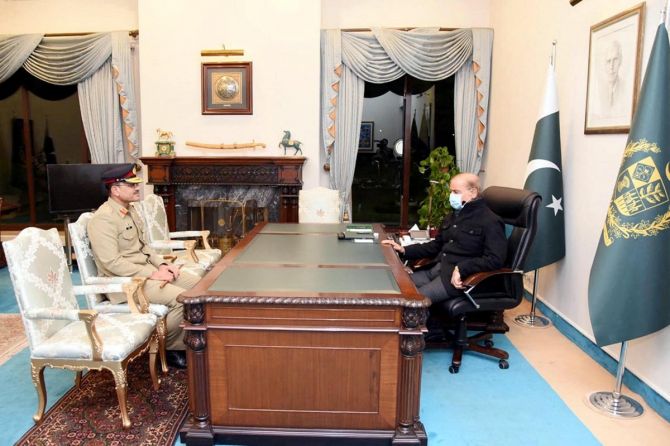
"We have to be watchful because General Asim Munir has had operational experience on the Line of Control and was director-general, Inter-Services Intelligence when the Pulwama attack took place," says Tilak Devasher, member, National Security Advisory Board and author of Pakistan - Courting the Abyss among other books.
"But in terms of the broad trend of policy, he will not be different from Generals Qamar Javed Bajwa, Ashfaq Parvez Kayani or Raheel Sharif," Devasher, whose latest book The Pashtuns: A Contested History was released in September 2022, tells Rediff.com's Archana Masih on Pakistan's new army chief.
The appointment of any new Pakistan army chief holds implications for India. In that context, what can India expect from General Syed Asim Munir?
Individually, an army chief cannot change the texture and direction of Pakistan's India policy.
Therefore, I don't think we should be looking at what an individual army chief will do differently from what has been the policy of Pakistan for the last 70 years.
The consensus of the corps commanders or the policy laid out for India by Pakistan cannot be changed by one army chief.
We have to be watchful because General Asim Munir has had operational experience on the Line of Control and was director general, Inter Services Intelligence when the Pulwama attack took place.
But in terms of the broad trend of policy, he will not be different from Generals Qamar Javed Bajwa, Ashfaq Parvez Kayani or Raheel Sharif.
General Munir was ISI chief when the Pulwama attack took place. In what way should India be cautious during his tenure as chief?
It is not only about him as army chief, but India is always careful and watchful about any recurrence of large-scale terrorism from Pakistan.
Infiltration and terror activity in J&K is continuing, but we must continue to ensure that large-scale acts of terror don't take place -- and this is something we have always been careful about -- so there is nothing extraordinary that we have to be extra careful about.
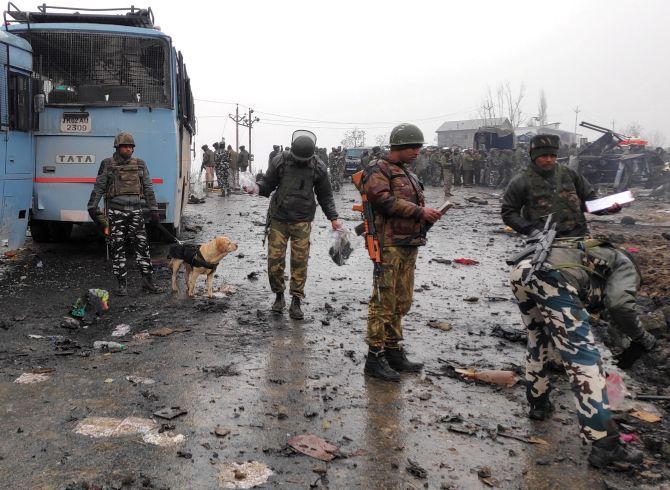
General Munir is known to be very religious (he knows the Quran by heart). What bearing is this likely to have on the Pakistan army? Will he be a hardline chief?
There is a difference between being devout and being hardline. So far there is nothing to suggest that he is associated with extremism.
His knowing the Quran by heart does not mean he will be a radicalised person. One should not extrapolate being devout to being radicalised.
How does he compare with other Pakistan army chiefs?
All Pakistan army chiefs follow a consistent line as far as India is concerned. He will not be able to do anything majorly different from Pakistan's India policy.
There may be a difference of style, nuance -- but the Pakistan army's anti-India policy will continue.
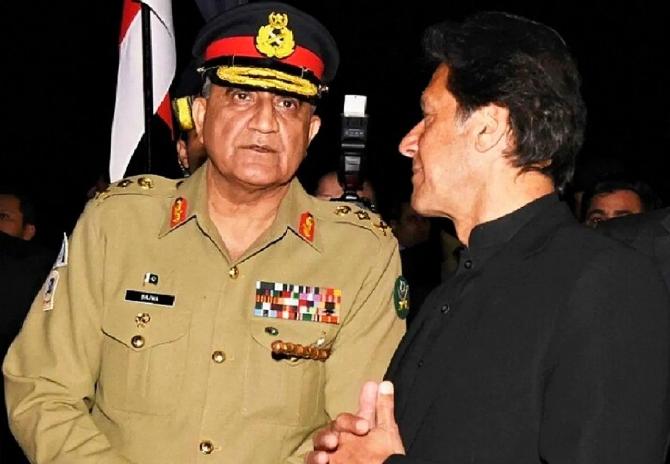
How will the Pakistan army face the challenge from a resurgent Imran Khan?
General Munir will be more focussed domestically.
Firstly, he has to restore the image and mystique of the Pakistan army which has been badly bruised by personal attacks by Imran Khan. He has to unify the army because there have been reports of dissensions and divisions within the army.
His next priority will be to see if Imran Khan continues his confrontation with the army as he had done with General Bajwa -- after all, he (Imran) had called Bajwa a traitor.
It also depends on what Imran Khan does, whether he continues on the same policy or changes his stance and tries to work with the establishment.
Imran has proved that he is very popular, but he has also proved that his popularity can be very dangerous if he attacks the army.
The army will be suspicious and cautious of Imran Khan till he proves otherwise.
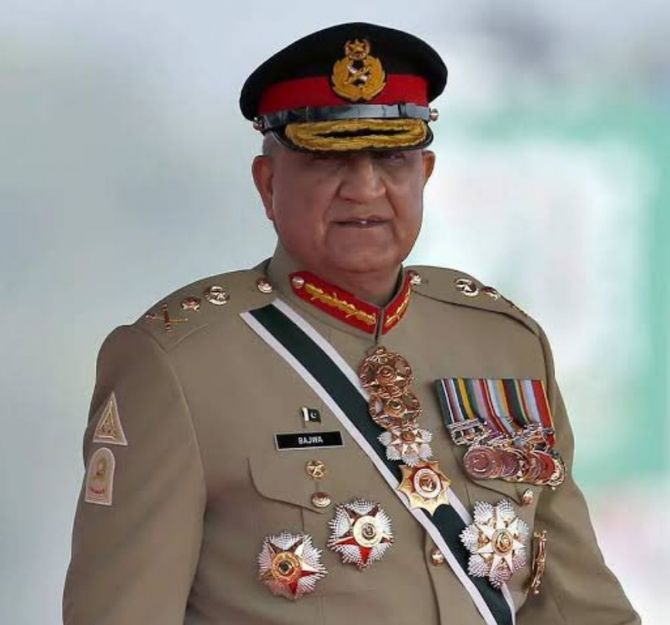
General Bajwa spoke of the military's interference in politics for the last seven decades and said it would 'never again interfere in any political matter in the future'. Is it even remotely possible that the Pakistan army will not meddle in the country's politics?
It will be very difficult for the army to disengage totally from politics since they have interfered for the last 70 years. Even the politicians will have withdrawal symptoms and go into shock!
Politicians themselves will have to behave responsibly if they want to keep the Pakistan army from meddling in politics.
Today, when politicians have a problem they go running to gate 4 of army headquarters. So politicians have to tackle their problems democratically in parliament.
If they don't do that and keep running to the army, then it will be very difficult for the army also to steer clear of politics.
Hence it will be difficult for both sides.
What has been the legacy of General Bajwa's six-year tenure as army chief?
He implemented the hybrid system of government that brought Imran Khan to power and made him the face of the government while the army took care of security, defence and foreign policy.
His main legacy thus is the failure of this hybrid model.
Secondly, under his watch the army's image took such a beating that it will take a long time for the next army chief to restore that image.
Third, under his watch terrorism began again and he was unable to tackle it.
Fourth, his amassing of wealth discredited the army and the office of the army chief.
His successor, General Munir, will have to sort out domestic problems first rather than focussing on India at the moment. He also has the problem of the TTP (the Tehrik-i-Taliban Pakistan) that has broken the ceasefire and started attacks.
Feature Presentation: Aslam Hunani/Rediff.com
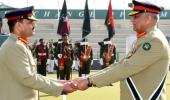










 © 2025
© 2025